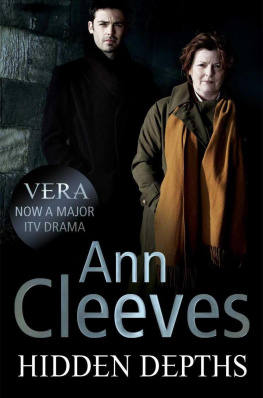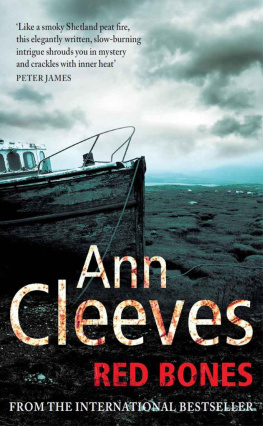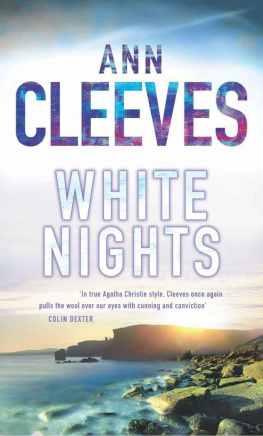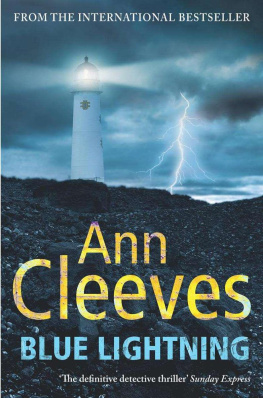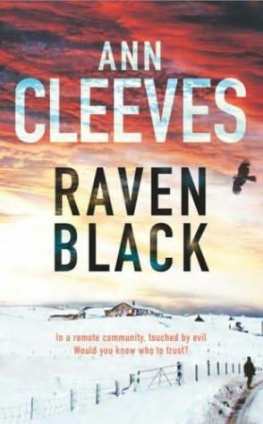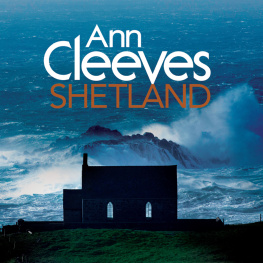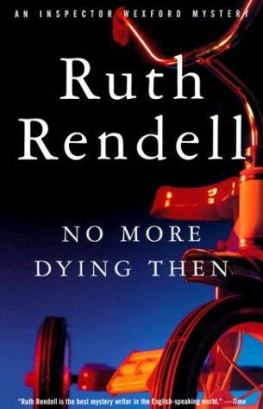Ann Cleeves - A Lesson in Dying
Here you can read online Ann Cleeves - A Lesson in Dying full text of the book (entire story) in english for free. Download pdf and epub, get meaning, cover and reviews about this ebook. genre: Detective and thriller. Description of the work, (preface) as well as reviews are available. Best literature library LitArk.com created for fans of good reading and offers a wide selection of genres:
Romance novel
Science fiction
Adventure
Detective
Science
History
Home and family
Prose
Art
Politics
Computer
Non-fiction
Religion
Business
Children
Humor
Choose a favorite category and find really read worthwhile books. Enjoy immersion in the world of imagination, feel the emotions of the characters or learn something new for yourself, make an fascinating discovery.

- Book:A Lesson in Dying
- Author:
- Genre:
- Rating:3 / 5
- Favourites:Add to favourites
- Your mark:
- 60
- 1
- 2
- 3
- 4
- 5
A Lesson in Dying: summary, description and annotation
We offer to read an annotation, description, summary or preface (depends on what the author of the book "A Lesson in Dying" wrote himself). If you haven't found the necessary information about the book — write in the comments, we will try to find it.
A Lesson in Dying — read online for free the complete book (whole text) full work
Below is the text of the book, divided by pages. System saving the place of the last page read, allows you to conveniently read the book "A Lesson in Dying" online for free, without having to search again every time where you left off. Put a bookmark, and you can go to the page where you finished reading at any time.
Font size:
Interval:
Bookmark:

Ann Cleeves
A Lesson in Dying
The first book in the Inspector Ramsay series, 1990
To the pupils and staff of
Holywell First School -
to which Heppleburn Primary
bears no resemblance at all.
Chapter One
At one time you could see fifteen working mines from Heppleburn churchyard. Now the nearest pit was miles away to the north beyond the horizon and only the chimneys of Blyth power station spoilt the impression of rural beauty. To the east farmland sloped down to the sea, the clean sweep of ploughed fields broken by the wooded valley which followed the burn to the coast and the houses of Heppleburn village. The sea was blue, almost purple, the tower of the old St Marys Island lighthouse was clear and white in the sunshine. Jack Robson put a bunch of chrysanthemums on his wifes grave. He had come with flowers every week since she had died two years before.
The school and the church stood together on the hill, and as he straightened he heard children singing We plough the fields and scatter. The Northumberland voices shortened the consonants and lightened the vowels. Jack Robson had sung the same hymn in exactly the same way more than fifty years before in Heppleburn school. He thought he had wasted his time there. It seemed to him now that he had been a dull and unimaginative boy. There had been no dreams, no ambition. It had never occurred to him that he might move away from south-east Northumberland, and during National Service he thought of nothing but coming home. People said that the mind grew slower as it got older, but he thought his brain was sharper now than it had ever been. With his retirement from the pit he had begun to read voraciously as some children do, and became immersed especially in history and biography. He found he could understand what he read, that he even occasionally had the courage to disagree with the opinions expressed.
The new confidence was noticed by other people. He had been a habitual member of the local Labour Party for years his father had been a great activist and it was expected.
More recently he had been asked to stand for the local council, and now as Councillor Robson he represented Heppleburn on Hepple Valley District Council. He was especially respected by his younger colleagues, for his openmindedness and his willingness to accept innovation, but he spoke in meetings of the old morality, the old principles, in a way that stirred them all.
Why do you bother with the job at the school? one of the younger men asked, implying, despite his politics, that manual labour was something to be ashamed of.
Robson shrugged. He could have said that he needed the money, which was true enough, but there was more to it than that. He liked the children and feeling part of a team. He was a school governor but he had more contact with the children through his work. Besides, what else could he do?
He looked at his watch and began to walk through the churchyard towards the school. In the distance a tractor was ploughing a newly harvested field with immaculate furrows, followed by a cloud of white gulls. The children had stopped singing. The school bell rang and as he reached the gate the pupils began to run into the playground on their way home. He waited to wave to his grandchildren then went in. He was the school caretaker. It was a job that suited him, despite the headmaster. He knew there would a Parents Association meeting that evening and began to set out tables and chairs in the hall. Lily, the cleaner, arrived on her bicycle and they shared a joke and a gossip while they worked. At five oclock he left and walked down the hill to the red-brick council house where he had lived since he was first married.
The ParentsAssociation meeting took place on the Friday before the Blackberry Week half term. Jack Robsons daughter was there and the Halloween party discussed by the meeting was her idea. Like all her ideas it was formed on the spur of the moment and ill thought through.
Youre mad, her husband said later that evening when she got home and told him about it.
I thought you were fed up with the Parents Association and now youve landed yourself a job like this.
It might be fun, Patty said, still excited because her idea had been agreed by the headmaster, her head still full of plans.
Im surprised Medburn agreed.
So am I, she said.
You only took it on because youre bored, Jim said. You should get a job.
He was right. With the children both at school she had been restless for months. She had even nagged her husband about moving somewhere a bit more stylish perhaps to Morpeth or on the coast, but Jim knew she would never leave Heppleburn. Besides, he said, how could they afford to move on a teachers salary? If she wanted a change she could go back to work. His mother would mind the bairns when they came out of school. Patty recognized the sense of his suggestion but knew she would not be satisfied with working as a clerk at the Gas Board again and realized she was qualified for nothing else. At eighteen she had left home to go to a teacher training college in Reading, but after a fortnight she was ill with homesickness and came home to her mam and dad in Heppleburn. The experience had made her glad then of the job in the accounts office, the security and the company of the other girls. Now she knew she would hate it. If only I had qualifications! she thought, and wondered hopelessly about the Open University, but she realized she would never have the application to complete a degree.
During this period of restlessness she had paid for evening classes and attended a few sessions, but never finished the course. She had taken up aerobics, dressmaking and archery and launched into each new interest with the conviction that it would meet all her needs. The conviction soon passed. She had been for wild nights out to the clubs in Whitley Bay with friends from her old job, but only woke up with a hangover and the same feeling of dissatisfaction. She had considered having a baby, even, in moments of deep depression when the day was empty except for cleaning windows and weeding Jims beloved garden, she had considered finding a lover, but she knew herself well enough to know that her enthusiasm for these projects would end long before the resulting complications.
Well, she said, looking at Jim through the untidy fringe which irritated him so much, itll keep me busy for a few weeks.
She had conceived the plan for the Halloween party on the way to the meeting. The church and the school were apart from the village, reached by a steep footpath between hawthorn hedges. The haws were forming and the leaves were beginning to change colour. Although she was late Patty stood for a moment in the playground. She came to school every day to bring her children, but she had a sudden memory of her own childhood there, never previously recalled. It was a freezing winters day, grey and overcast, with flurries of snow, the flakes as small and painful as hail. Her knees and hands had been blue in the bitter wind which came uninterrupted from the North Sea. Miss Hunt had let them into the classroom early and they stood around the big, evil-smelling boiler in the corner until their flesh tingled with the unaccustomed warmth. Miss Hunt had been her first teacher and Patty had loved her passionately. Now she taught Pattys daughter Jennifer and soon she would retire.
The school had been smaller in Pattys day and so had the village. Its heart had been the main street of solid grey houses, with the post office and the Northumberland Arms. There had been the small council estate where her father still lived and she had been brought up, and the row of miners welfare cottages where old men coughed and spluttered and smoked themselves to death. The children had fitted easily into two classrooms the infants in one and the juniors in another. In recent years the village had grown. Builders had bought the low land near the burn and turned it into the estate where she and Jim lived. It was similar to other estates surrounding other villages all over the country. Most of the homes now had swings in the back garden and a bike in the garage and the school had expanded into a series of mobile and new classrooms.
Next pageFont size:
Interval:
Bookmark:
Similar books «A Lesson in Dying»
Look at similar books to A Lesson in Dying. We have selected literature similar in name and meaning in the hope of providing readers with more options to find new, interesting, not yet read works.
Discussion, reviews of the book A Lesson in Dying and just readers' own opinions. Leave your comments, write what you think about the work, its meaning or the main characters. Specify what exactly you liked and what you didn't like, and why you think so.

